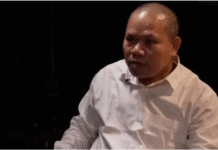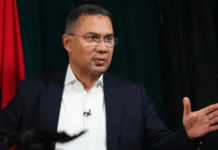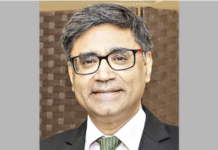A Muslim convert and former hip-hop artist becomes a voice for Islam
Defying Muslim stereotypes and ending bias is what Kenny Bomer is all about.
The Midtown resident believes he might have an edge. He’s no stranger to a microphone, and as a white man, Bomer explained, he is not immediately hit with the same ignorance that his fellow Muslims face.
“If I’m just wearing my Astros cap, if I don’t have on a Kufi, you would never know,” he said. “For people of color, it’s often more difficult. Being white gives me a prime position to break down bias. I’m a Houstonian. I’m a Texan. I’m proud of that. But it’s also my obligation to speak up when my Muslim brothers and sisters may feel reluctant to do so.”
He’s also willing to share his story with anyone who agrees to listen — in hopes that hearing directly from the source will have a positive impact.
Each weekend, Bomer, 48, sets up a booth at Hermann Park, as head of the local chapter for the organization Mercy for Mankind.
The global nonprofit hopes to bring awareness of the true beliefs of Islam — and to build a bridge with other faiths through dialogue, founder Amr El Samny said.
“Islam is very misunderstood by the public,” he said. “There’s a need to go there, let the people know who we are and change their preconceived notions.’’
Since 9/11 and the development of the Islamic State group, El Samny said that a rising tide of Islamaphobia has hit the U.S.
“There’s been a lot of tarnishing,” he said. “There are always extremists in every faith. Our job is to educate the public.”
El Samny discovered a kindred spirit in Bomer. “He’s very humble and godly,” El Samny said. “I was impressed with him.”
El Samny flew to Houston to train Bomer in the Mercy for Mankind style and joined him on his first few outreach sessions.
“Kenny’s biggest asset, his greatest gift, is his big heart,” El Samny said. “You can see the goodness in him. He has the ability to connect with people because of his sincerity. He’s out there to really help.”
Bomer said that a number of people fear Islam without ever speaking to an adherent to the faith.
“It’s our obligation as Muslims is to share Islam with other people, to tell other people about the beauty of Islam,” Bomer said.
That’s why he invites all passersby to ask him whatever questions they might have.
He also serves as public speaker about his religion and recently released a book, “Consider Islam: Disproving the Patriots of Propaganda,” through an independent publisher. The book became available on Amazon at the end of April.
Bomer’s writing skills also set him apart, El Samny said. “He has been a Muslim for about 30 years now,” El Samny said. “He’s accumulated a lot of knowledge. He knows so much about Islam.”
Bomer found religion in an unusual place — rap music.
The Houston native had a difficult childhood. At age 10, while residing in Freeport, he became a ward of the state.
“It was one of the greatest blessings of my life, to be honest,” he said.
Bomer appreciated having a safe home and regular meals. In addition, employees at the Brazoria County Youth Home, where he lived until age 18, exposed him to Christianity. He enjoyed developing his spirituality, but, as an introspective and thoughtful teen, he started to question what the religion taught.
“I began to analyze the things they said in the church,” he recalled. “A lot of questions came to my mind about who God was.”
Bomer was attending Brazosport High School, where his interest in writing and music flourished. He also met coach and history teacher Norris Burse or “Champ.”
Bomer and his friends would engage in battle rap in the school hallways. They knew that Burse was also interested in hip-hop and had ties to a recording studio.
“We approached him about being our DJ, and he agreed to it,” Bomer said. “We started going to his studio.”
Before long, however, Bomer and Burse started their own rap duo known as “Def Squad” and signed a record deal on the Mr. Henry label.
While driving back and forth to appearances and recordings, Bomer learned about the Nation of Islam, which Burse had joined.
Burse kept a Quran in his car, and one day, Bomer picked the text up.
“I immediately knew that book was the truth,” Bomer recalled. “It answered all the questions I had in my mind.”
He read the Quran more and more, studied Islam and debated with Burse about the religion.
All the while, he was touring and becoming better known for his music.
Bomer eventually went out on his own, starting his own studio in Freeport, signing a solo deal and promoting other rappers.
While music brought him to Islam, Bomer admits that a difficult divorce in 2014 made him more serious about the religion.
“That hardship took me to a better place,” he said. “The Quran teaches that we’re going to be tested. We’re going to endure trials. Those who are patient, those who stay in prayer, will get through it.”
Bomer said that the time he suffered made him more sincere. “It made me more reliant on my creator,” he said. “He was there when no one else was. I devoted my life to speaking the truth.”
He jumped into public speaking and started researching for his book.
“I’m trying to break down all of those misconceptions, because I know what Islam means to me,” he said. “I want to speak to others about Islam, to tell them that they’re criticizing something that has done wonders for my life.”
Bomer said that, too often, individuals use what they see in movies or short sound bites on the news to mold their view of Muslims, instead of doing their own investigations.
“They’re made to fear Muslims, but the truth is that Muslims are doctors, lawyers, public officials, professors,” he said. “Muslims are in the community everywhere, especially in a city like Houston. I’m trying to break down those stereotypes one by one and get people to think realistically about Islam and not to pass judgment.”
He said the roots of anti-Muslim sentiment reach far into U.S. history.
“It’s not anything new,” he said. “That’s what my book is addressing. We’re still seeing people being labeled. People who wear a hijab are looked at as a potential terrorist, without anyone taking time to learn about the people and see what Islam is about.”
Asking questions and learning more is the best way to change that, Bomer said.
“That’s how we break down barriers and take down walls,” he said. “All of these people are your neighbors. Don’t fear your neighbors.”
El Samny agreed. He added that the need for leaders like Bomer and groups like Mercy for Mankind have only increased in recent years.
The news is full of mosques and synagogues becoming targets in the U.S., of mounting hatred and bigotry, he said.
That’s a trend he wants to reverse.
“Prophet Muhammad’s message was universal,” he said. “He preached love for everybody. He came to unite not to divide. The world has grown to be a merciless place. We want to bring that compassion back.”
Lindsay Peyton is a writer in Houston.












